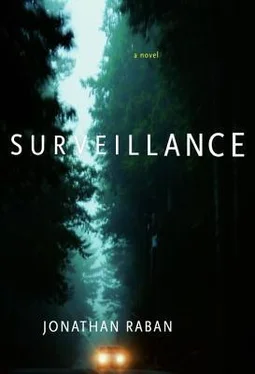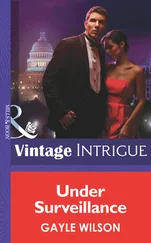“Sam Walton began in 1945 with a single dime store. He didn’t open his second store until seven years later. Walton built incrementally, step by step, turn by turn of the flywheel….”
MAYBE IT WAS just that Germans were in the habit of tossing infirm, elderly Jews out of windows in their armchairs.
Nothing else in The Pianist chimed directly with Boy 381. Lucy had gutted it that evening, cover to cover, carefully reading every page. Both books were set in the same landscape of hunger, wreckage, and brute violence, but aside from that they were as different as could be. Vanags was the better writer: Szpilman, pianist and composer, writing back in 1945, was perhaps a little too close to his terrible material to achieve the sharp focus that was Augie’s hallmark. In Boy 381, suffering and laughter were constant bedfellows: there were no laughs in The Pianist.
Over the weekend, she’d raise the coincidence with Augie — lightly, casually, with tact. He had no reason to embellish his unique experience of the war by lifting a paragraph from someone else’s book. Somehow the explanation must lie in the character of the war itself. Yet that one incident — the irregular soft thud of the body, the splintering crash of the chair on cobbles — had thrown the book out of whack for her and become the dominant image in the foreground. Happening on The Pianist had made her a bad reader of Boy 381, unable to see the forest because of her perverse preoccupation with a single tree. But she was sure that talking with Augie would restore the book to its rightful shape in her mind — well, almost sure.
It had been a tough sell, trying to get Alida to buy into the weekend. She’d played the homework card, the date-with-Gail card, the stay-with-Tad card.
“The house is right on the beach. You used to love that beach when you were little. Don’t you remember Tom and Maggie Owen?”
“No.”
“We’ll pack your swimsuit.”
“How old are they?”
“Oh, sort of…sixtyish.”
“Great.”
“They have kayaks. Augie wants to take you kayaking.”
“Cool,” Alida said, making kayaks sound like a second helping of spinach.
The school had recently sent out a booklet, “Understanding Your Child.” Alida, at eleven, now exactly fit the profile of “Early Adolescence: Ages 12–14,” which advised parents to “resist seeing only the worst in your changing children. Focus on the positive, including their creativity, curiosity, and fresh ideas”—easier said, as Lucy was finding nowadays, than done.
“Anyway, Rabbit, we’re going.”
“Okay. I really like being a parcel.”
Then, when Lucy laughed, Alida abruptly relented. “You know, it’s been so long since we were at the beach? Not since we went to Hawaii.”
And when they were snuggling in Alida’s bed at around ten, she’d said, “Mom, I’m really looking forward to going to Useless Bay,” but Lucy caught in her voice the unmistakable tone of an adult indulging a child. Perhaps the school had issued a similar booklet to the students: “Understanding Your Parent.” What profile, Lucy wondered, did she fit?
From under the covers, she clicked on the remote to watch the late-night news. The torrential rain had triggered a massive rockslide near Snoqualmie Pass, closing Interstate 90 in both directions. A murder-suicide in Bellevue: “They seemed like such a normal, happy couple,” said a neighbor. More on the Safeco “terrorist,” who’d been released and sent back to Canada; but his brother had been found in a Eureka, California, motel, his giveaway Jetta parked outside his cabin, and was now in police custody, charged with immigration violations and tax fraud. Under the new laws, they never arrested anybody who wasn’t guilty of something.
As Augie had said, the weather for tomorrow looked good: isolated early morning showers, followed by sunshine in the afternoon. Temperature in the high seventies, rising to the mid to upper eighties on Saturday and Sunday. “For the first week in April that’s phenomenal,” said the weatherman. “You’re talking me into my bikini,” replied the fortyish newscaster in the coy voice that always made Lucy reach for the retch button and switch her off.
Readying herself for sleep, she evicted thoughts of Augie and his book from her mind and returned to the place she so often visited at this time of night — a long, straight, gumbo road riding the oceanic swells of prairie; her dad in the driver’s seat, on his rounds; scanty-legged pronghorn antelope leaping barbed-wire fences; the openness, the smell of dust and sage; prairie dog towns by the roadside; seasonal creeks overhung with cottonwoods; cattle on the rangeland; far-apart ranches hiding behind shelter belts of trees. The more remote this world grew from her, the greater the solace Lucy took from it in her most placid and satisfying dreams. So tonight she willed herself back to Custer and Prairie counties, her own patch of Eden before the world went bad. The penalty she paid for these sweet dreams was that occasionally she’d wake up screaming, but only when the dream went into uncontrollable fast forward — a risk that Lucy was prepared to take, for most nights the route in her dreams took her nowhere near where Lewis Olson stood, barring the entrance to his slovenly ranch.

ALL VERY WELL for Lucy — the model bourgeois liberal — to tease him about his “paranoia,” but Tad wasn’t paranoid, he was entirely reasonable.
In the late sixties, in Vietnam demonstrations, he’d seen men in nondescript brown suits — J. Edgar Hoover’s ubiquitous spies — taking pictures of the marchers, and with nearly forty years of protest and activism behind him, Tad was certain that somewhere along the way he must have picked up an FBI file. Even though he had drawn a 7 in the lottery, he escaped Vietnam by being “psychologically unfit,” their term for being a raving homo — a role he’d played with great conviction for the draft board. And in 1999, he’d gotten into trouble with Equity for marching with Michael, as they jointly held up a banner that proclaimed, SEATTLE ACTORS EQUITY AGAINST NIKE AND GLOBAL EXPLOITATION, during the WTO protests. A stern letter had come from New York threatening him with expulsion from the union after that.
In his time, Tad had demonstrated in favor of women’s rights, gay rights, and undocumented migrant workers’ rights, and against detention without trial, the sacking of Archibald Cox, the funding of the Contras, the invasion of Grenada, oil drilling in Alaska…too many causes to remember. He’d carried placards for Che, Fidel, Huey Newton, and Daniel Ortega, and had recently tried to stage a rally in support of Hugo Chavez, though he’d found too few takers to make it worthwhile. Lucy had said, “Hugo who?”
Of course they were keeping tabs on him. How could they not?
Data mining was Tad’s current obsession. Someone, somewhere, was watching as he tramped from site to site in cyberspace. The Patriot Act gave the federal government unlimited power to snoop on private citizens, and a daily visitor to Al-Jazeera must surely have aroused the interest of whoever was monitoring that site. Tapping out e-mail, Tad sensed that his messages were being scanned by an anonymous eavesdropper. Paranoia? Hardly. Internet service providers were required by law to render up complete records of their clients’ every digital move if they were sent a “national security letter” by the FBI.
Was he the subject of such a letter? The ISPs were sworn to secrecy on the matter, on penalty of a lengthy jail term, so you’d never know for certain that you’d been watched — until they knocked at your door.
Читать дальше













